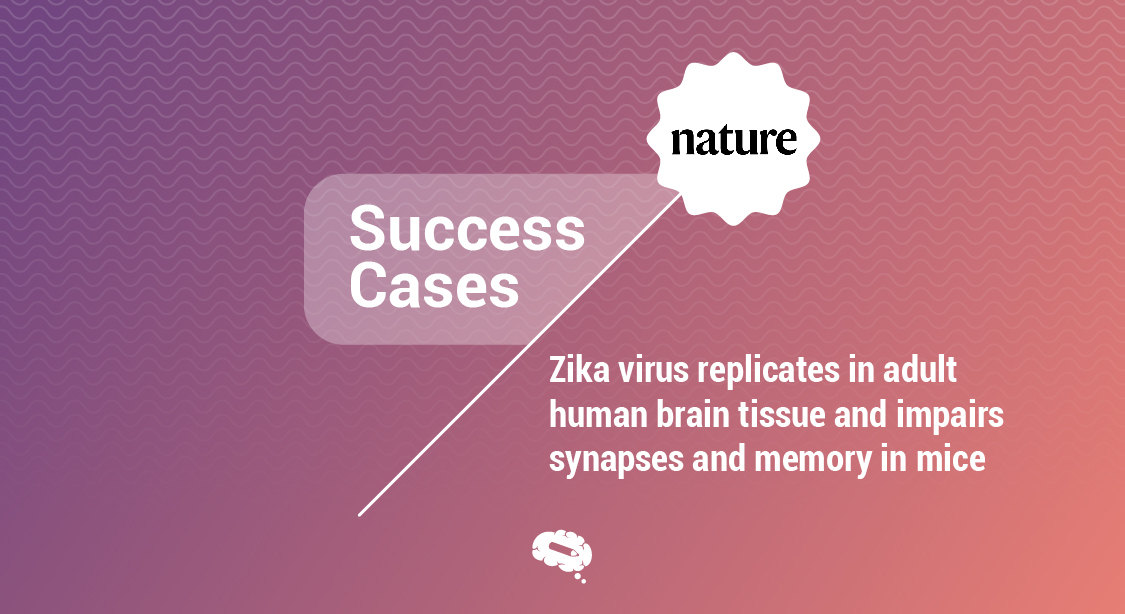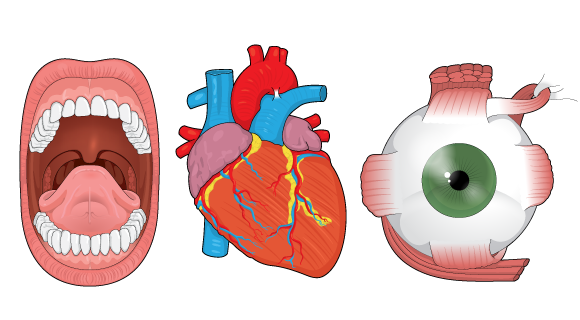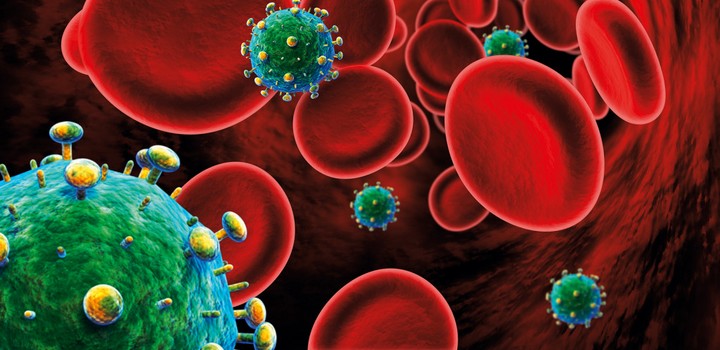ZIKV is a dangerous virus that ravages the world. Therefore, in this case, the author studies its replication in the adult human brain.
Zika virus (ZIKV) infects adult brain tissue and causes memory impairment in mice
A group from the School of Pharmacy led by Claudia Figueiredo (2019) studied how zika virus replicates in adult human brain tissue and impairs synapses and memory in mice. Zika virus is an arbovirus belonging to the Flaviviridae family responsible for a recent major outbreak in Latin America.
ZIKV has been found in the brains and CSF of adult patients. NS2B immunoreactivity colocalized with NeuN-immunoreactive cells, but not with GFAP or F4/80, indicating that neurons are targeted by ZikV in the mature human tissue. In adult immunocompetent mice infected by intracerebroventricular infusion of ZIKV, high levels of ZikV RNA are detected in the frontal cortex and hippocampus, and mature neurons are the main cell type infected.
Elevated brain levels of TNF-α, intense microgliosis, upregulated expression of complement system proteins (C1q and C3), and hippocampal synapse damage are verified.
The study involved 9 equal quadrants.
Check the original article here.
Graphical Abstracts powered by Mind the Graph
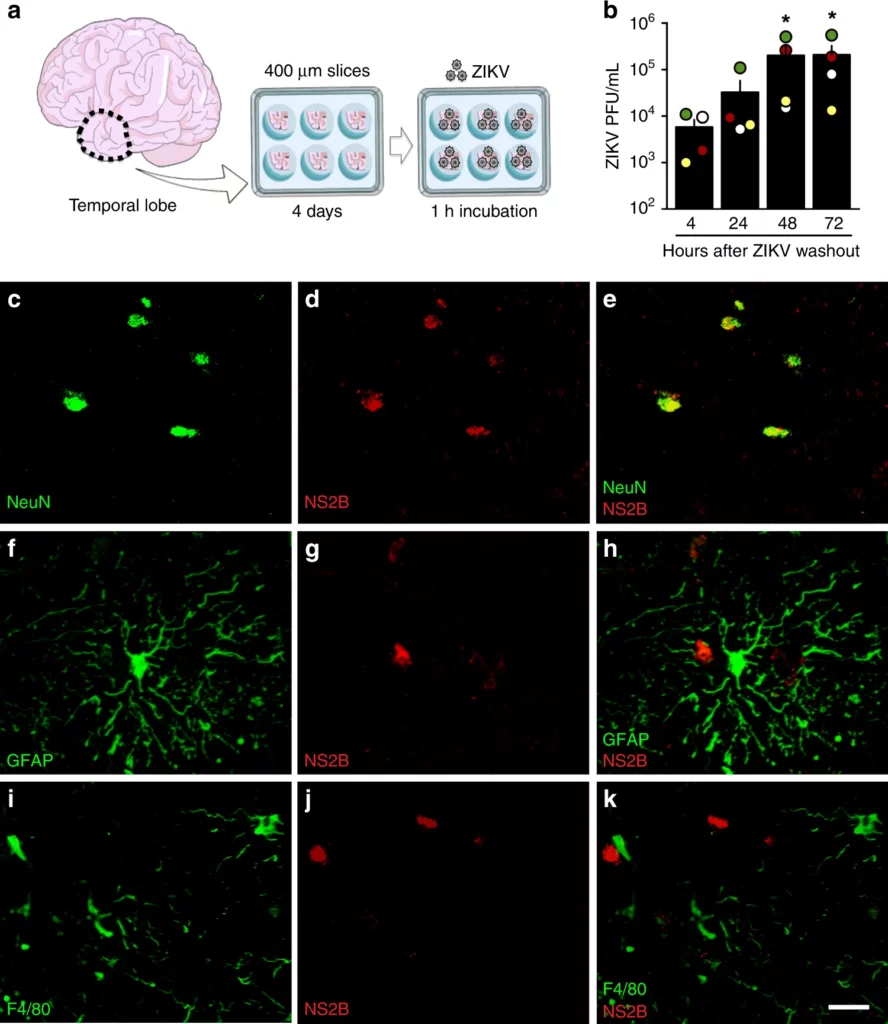
The first figure represents the case where the human temporal lobe cortical tissue fragments were sectioned into 400 µm slices and maintained in culture for 4 days prior to incubation with ZIKV (107 PFU) or mock medium for 1 h, followed by washout.
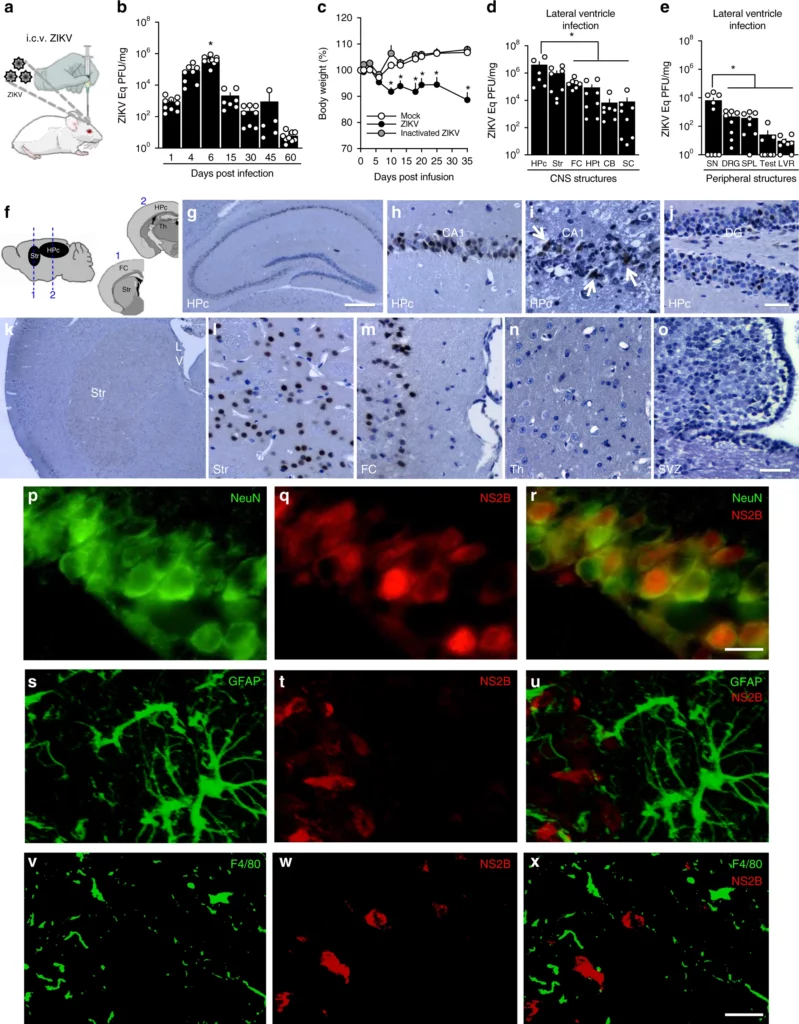
The second shows that adult mice received an infusion of 105 PFU ZIKV, UV-inactivated ZIKV or mock medium into the cerebral lateral ventricle.
The conclusions seem to back up what was previously known about this subject: “ZIKV targets memory-related brain regions regardless of whether the route of infection is central or peripheral. The virus has been detected in CSF of adult patients with neurological complications,” Figueiredo claimed.
They propose that future studies aimed to examine the long-term neurodegenerative impact of ZIKV infection are warranted. Identifying ways to prevent signaling abnormalities leading to brain dysfunction could pave the way to intervention strategies to delay or prevent the development of major neurological conditions.
Papers Impact and Performance
We can analyze with Altmetric data that this paper’s online attention score is higher than 95% of all other articles of a similar age in Nature Journals.
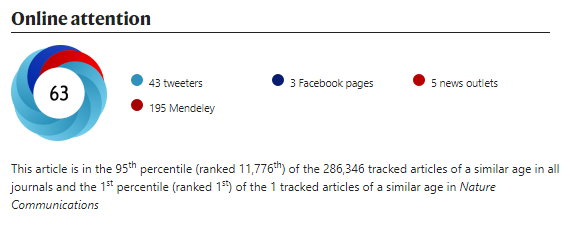
Use the power of infographics to boost your article too! Start a creation at Mind the Graph.

Subscribe to our newsletter
Exclusive high quality content about effective visual
communication in science.

